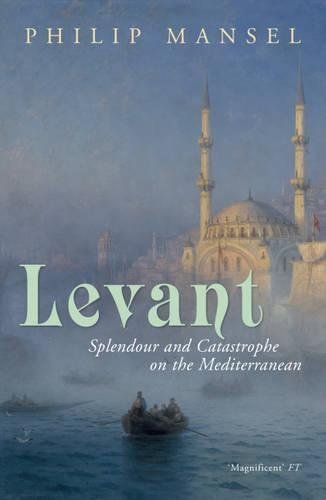
Levant Splendour and Catastrophe on the Mediterranean
Levant is a book of cities. It describes the role of Smyrna, Alexandria and Beirut as windows on the world, escapes from nationality and tradition, centres of wealth, pleasure and freedom. By their mix of races and religions, they challenge stereotypes. France and Britain liberated the area through their schools, while conquering it through arms. They were not only manipulators but manipulated, often invited in by local factions. Smyrna, Alexandria and Beirut were both pacifiers and stimulants of nationalism. Nasser was born in Alexandria, Smyrna and Beirut became centres of Turkish and Arab nationalism. Using unpublished family papers Philip Mansel describes their colourful, contradictory history, from the beginning of the French alliance with the Ottoman Empire in the sixteenth century to their decline in the mid twentieth century. Smyrna was burnt; Alexandria Egyptianised; Beirut lacerated by civil war. Levant is the first history in English of these cities in the modern age. Levant is also a challenge from history. It is about ourselves; it shows how Muslims, Christians and Jews live together in cities. Levantine compromises, putting deals befor ideals, pragmatism before ideology, made these cities work, until states reclaimed them for nationalism. Smyrna, Alexandria and Beirut have a message for today. The new Levantine cities of the twenty-first century, with comparable mixes of races and religions, are London, Paris and New York.